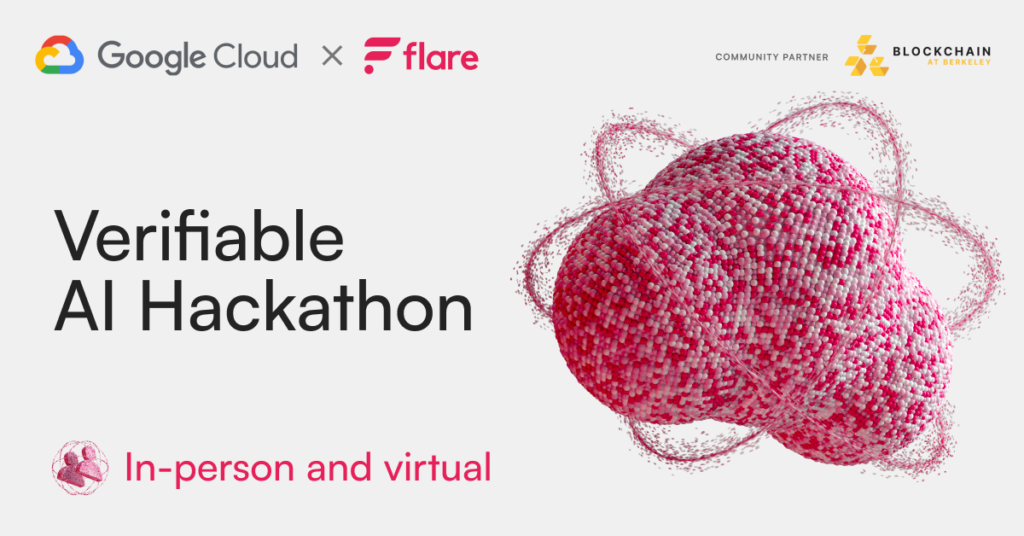The post Flare Collaborates with Google Cloud to Host AI Hackathon at UC Berkeley appeared on BitcoinEthereumNews.com.
The Verifiable AI Hackathon is scheduled to take place from March 7th to March 9th at California Memorial Stadium, UC Berkeley. Confidential Computing, which is offered by Google Cloud, will be used by developers in conjunction with Flare’s native decentralized data protocols. The prize pool for the in-person hackathon will be $60,000, while the prize pool for the virtual hackathon will be $40,000. At UC Berkeley, Flare will collaborate with Google Cloud to host a Verifiable AI Hackathon. Through the course of this event, it will look into the ways in which verifiable offchain compute can revolutionize Web3 apps, especially for data and compute-intensive use cases like artificial intelligence. Participants will compete for a prize pool of $100,000. At the Verifiable AI Hackathon, which is scheduled to take place from March 7th to March 9th at California Memorial Stadium, UC Berkeley, the primary emphasis will be on verifiable artificial intelligence that is executed offchain in Trusted Execution Environments (TEEs). The event will provide developers with the tools necessary to strike a balance between decentralization and performance in blockchain applications driven by artificial intelligence. The prize pool for the in-person hackathon will be $60,000, while the prize pool for the virtual hackathon will be $40,000. Apply to join the hackathon: https://hackathon.flare.network Flare, the blockchain for data, allows developers and consumers safe, decentralized access to high-integrity data from other chains and the internet. Flare uniquely supports entrenched data protocols at the network layer, making it the only EVM-compatible Layer 1 designed for decentralized data collecting, including price and time-series data, blockchain event and state data, and Web2 API data. By enabling wide data access at scale and little expense, Flare enables a full-stack solution for building the next generation of interoperable use cases. On-chain processing has computational constraints, which is one of the most significant obstacles that must…

